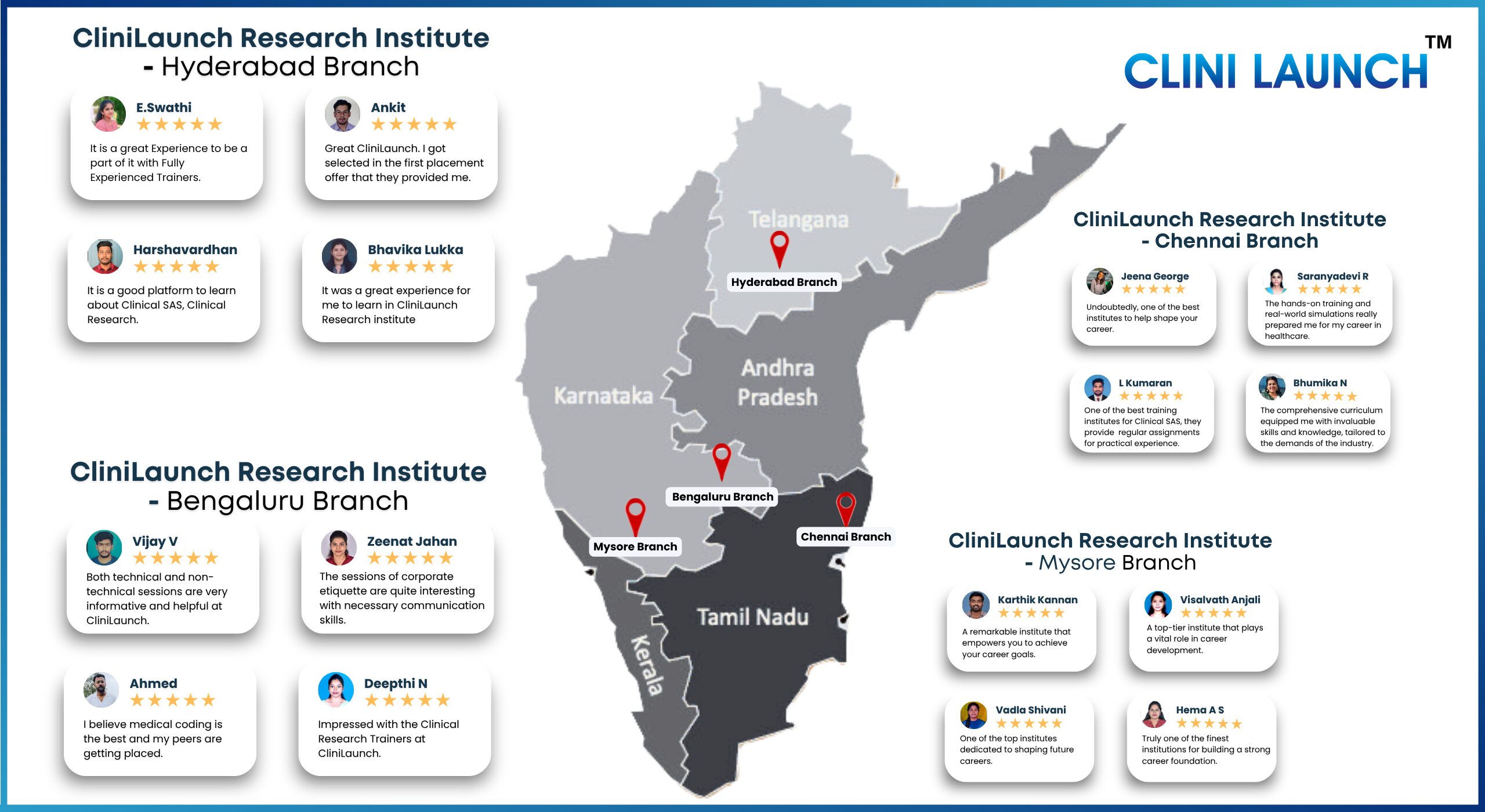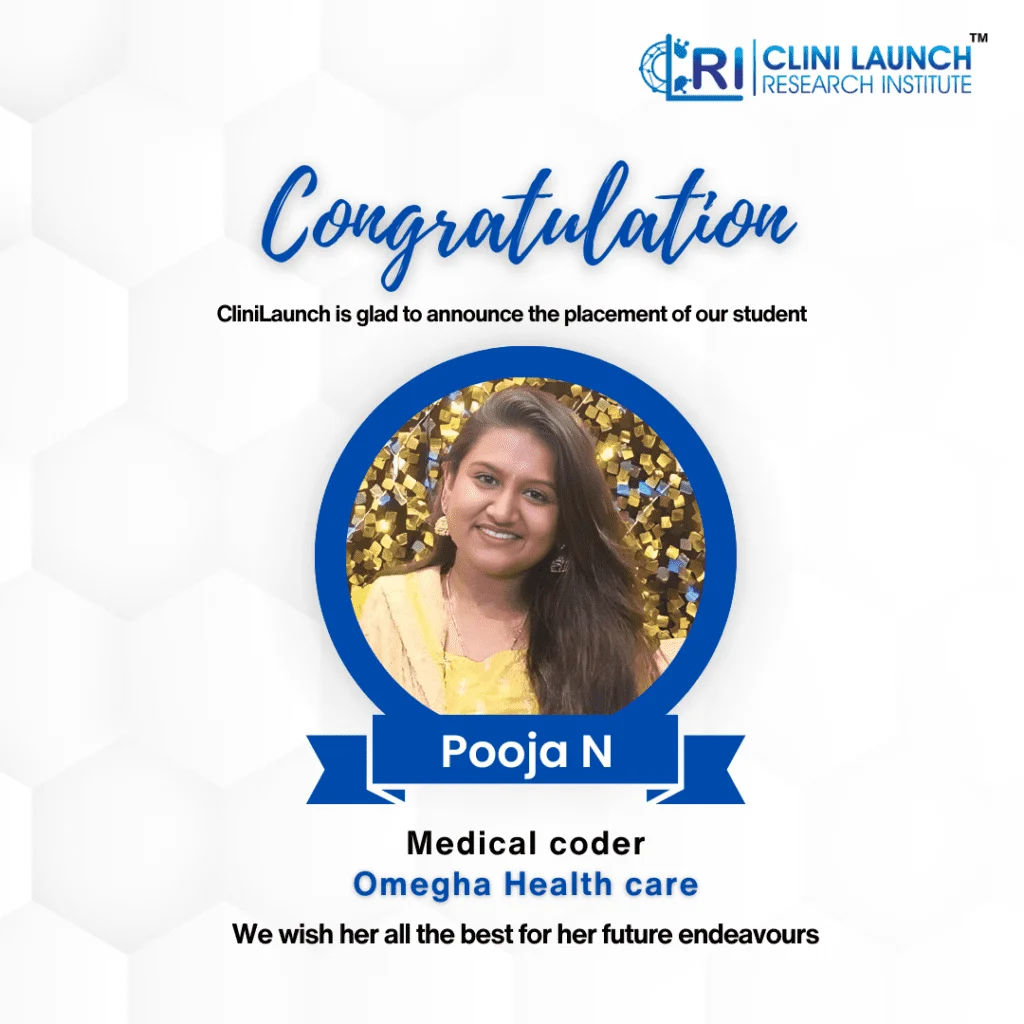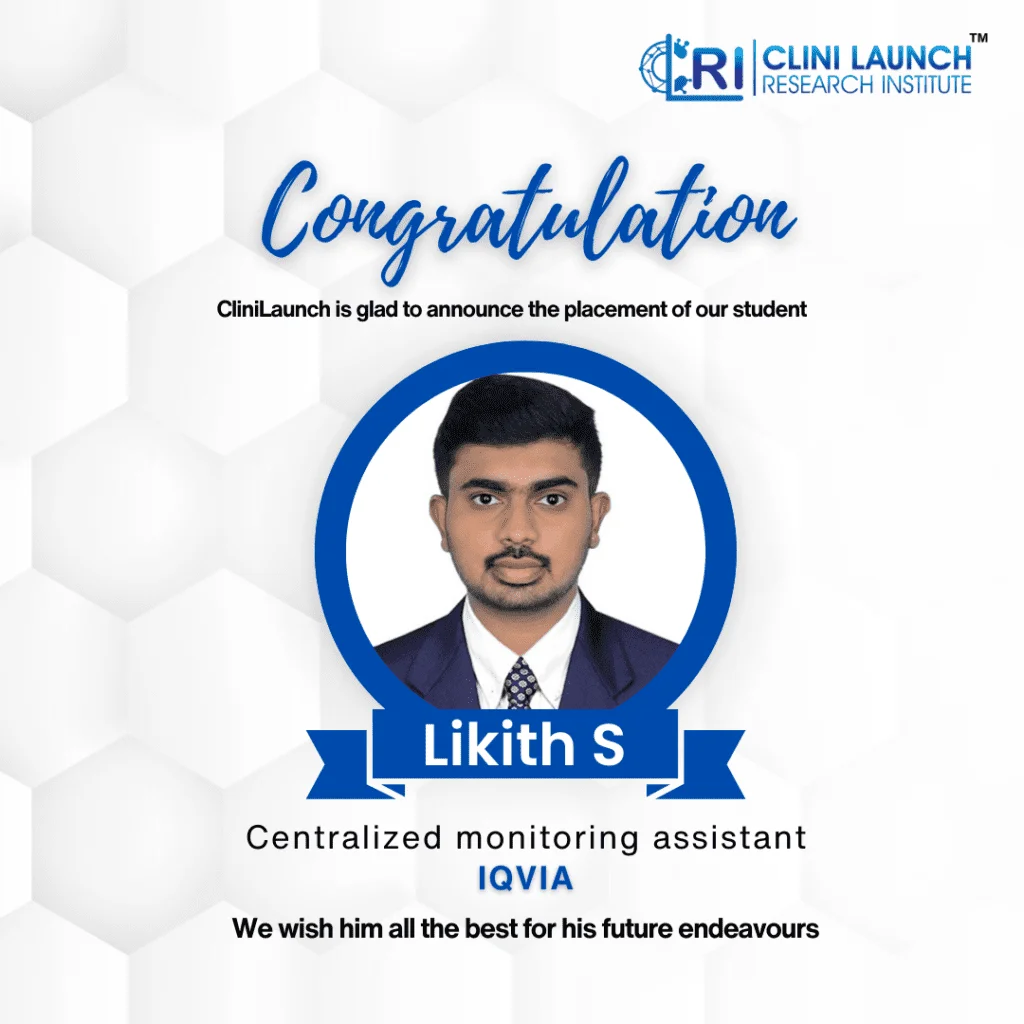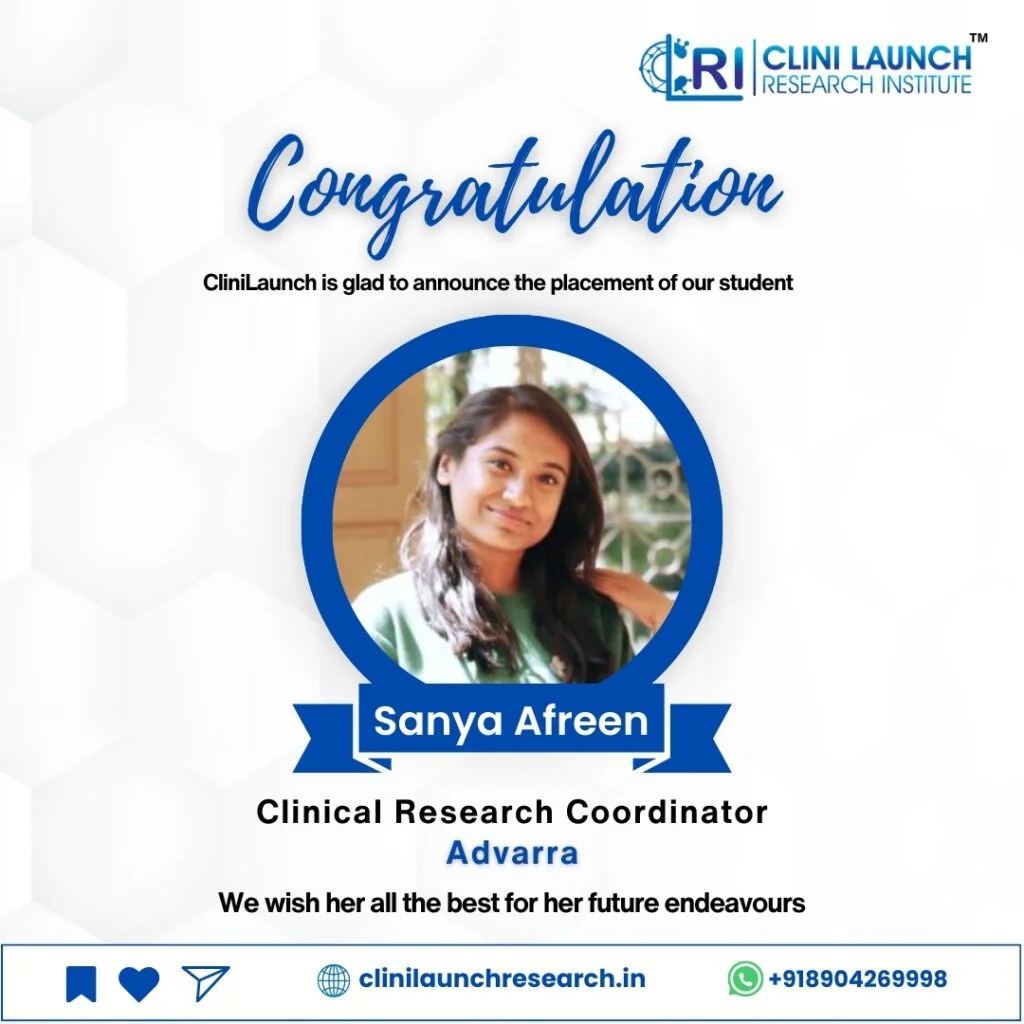Clinical SAS in Bangalore
Are you looking for the best clinical SAS online training
institute? You are at the right place at the right time.
Kickstart your journey to prepare yourself with advanced
diploma in clinical SAS course.
- 100% Placement Assistance
- IAO Accredited Courses
- Industry-Ready Curriculum
- Hand-on Practical Experience
A diploma course for pharma & IT professionals
Live Online Classes starting on 8th, 15th, 22nd & 30th.
Book Your Free Demo Class Today!
Clinical SAS in Bangalore
- 100% Placement Assistance
- IAO Accredited Courses
- Industry-Ready Curriculum
- NSDC Certified Institution
Healthcare Diploma Courses for Pharma & IT Professionals
Live Online Classes starting on 8th, 15th, 22nd & 30th.
Book Your Free Demo Class Today!

IAO & NSDC Accredited Courses

100% Placement Assistance

Hands-on Practical Training

Industry-led Expert Trainers
Our Courses

Certification in Clinical SAS
Demonstrate your professional ability to use SAS
programming software for clinical trial programming
with globally recognized certification.

Advanced Diploma in Clinical SAS
Learn how to use SAS Software for clinical trials, and
gain expertise in data analysis and clinical SAS with
advanced diploma in clinical SAS
Career Paths after Clinical SAS Diploma Courses
Clinical Research Associate
Highlight the relevance of clinical research after BDS while understanding trials procedures and interacting with dental professionals in clinical trials.
Responsibilities: Monitoring clinical trials, ensuring adherence to protocols, data collection, and interacting with investigators.
Clinical Data Analyst (CDA)
Manage information, identify data trends, maintain systems, ensure high-quality and safe data following healthcare informatics regulations.
Responsibilities:
Collect and record data, Analyze data trends,
Create reports, Design systems
Clinical SAS Programmer
Use statistical and mathematical methods to analyze and interpret clinical trial data.
Responsibilities: Develop SAS macros, Templates and utilities for
data cleaning and reporting
Regulatory Affairs
Responsibilities: Ensuring compliance with regulatory guidelines (e.g., GCP, ICH-GCP).
Pharmacovigilance
Responsibilities:Monitoring drug safety and adverse events.
Career Paths after Clinical Research Diploma Courses
Clinical Research Associate
Highlight the relevance of clinical research after BDS while understanding trials procedures and interacting with dental professionals in clinical trials.
Responsibilities: Monitoring clinical trials, ensuring adherence to protocols, data collection, and interacting with investigators.
Clinical Data Manager (CDM)
Emphasize the importance of attention to detail and organizational skills, valuable assets for clinical research after BDS.
Responsibilities:Data cleaning, validation, and analysis, ensuring data accuracy and integrity.
Clinical Research Coordinator (CRC)
Highlight the patient interaction and communication skills developed during BDS studies.
Responsibilities:Assisting investigators in conducting clinical trials, managing study logistics, and interacting with patients.
Regulatory Affairs
Responsibilities: Ensuring compliance with regulatory guidelines (e.g., GCP, ICH-GCP).
Pharmacovigilance
Responsibilities:Monitoring drug safety and adverse events.
What Sets CliniLaunch Apart

Placement Assistance
Strong network of recruiters from the healthcare, pharmaceutical, and biotechnology industries and offer placement assistance to students.
Industry Expert Trainers
Equip yourself with skills and knowledge under the mentorship of experienced faculties with over 17 years of experience in the field of healthcare research and training.
Learning Management System
Embark on a transformative learning experience with our state-of-the-art Learning Management System!
Non-Technical and Technical Sessions
Go beyond the textbook with a well-rounded foundation balancing essential technical and non-technical skills needed to thrive in healthcare, IT and Pharma.
Job Oriented Programs
Get comprehensive job-oriented programs to empower you with the skills and knowledge you need to succeed in the dynamic and competitive healthcare sector.
Clinical SAS Training Online course syllabus
Curriculum for Clinical SAS Training in Bangalore
This forms the bedrock, covering the SAS environment, data types, variables, basic programming statements (DATA step, PROC step), data import/export, and fundamental data manipulation techniques like merging, appending, and subsetting datasets. If often includes an introduction to SAS macros for automation.
This module focuses on ensuring the quality, accuracy, and consistency of clinical trial data. This involves data validation, cleaning (handling missing values, outliers), discrepancy management, and implementing quality control procedures. It also covers the creation and maintenance of clinical databases within SAS.
A critical component, this module delves into the Clinical Data Interchange Standards Consortium (CDISC) models, primarily the Study Data Tabulation Model (SDTM) and Analysis Data Model (ADaM). Participants learn how to map raw clinical data to SDTM domains and derive ADaM datasets for analysis, which are essential for regulatory submissions.
This involves applying statistical procedures using SAS/STAT to analyze clinical trial data. Topics include descriptive statistics, inferential statistics (hypothesis testing, confidence intervals), ANOVA, regression analysis, survival analysis, and generating tables, listings, and figures (TLFs) commonly found in Clinical Study Reports (CSRs).
Teaches how to create compelling visual representations of clinical data using SAS/GRAPH or SAS Visual Analytics. This includes generating various plots and charts (e.g., scatter plots, bar charts, line graphs, heatmaps) to effectively communicate study findings and trends.
Moves beyond basic statistics to more complex analytical methods relevant to clinical research. This might include mixed-effects models, generalized linear models, advanced survival analysis, and potentially an introduction to machine learning concepts within SAS.
Emphasizes adherence to international regulatory guidelines such as those from the FDA (Food and Drug Administration) and EMA (European Medicines Agency), and ICH GCP (International Conference on Harmonization – Good Clinical Practice). It covers the process of preparing SAS datasets and documentation for electronic submissions to regulatory authorities.
FREE Career Counselling
We are happy to help you 24/7
A Student’s Journey



Industry-Ready Training
Equip yourself with skills and knowledge required to be successful in the healthcare-pharma or healthcare-IT industry. Enhance your communication and personality.
Certified Courses
Earn credentials through online or in-person programs validating the enhancement of your skills and expertise in the healthcare-IT and pharma sector.
Get Placed
Gain access to volunteer, internship, and placement opportunities and apply real-world applications in healthcare settings like hospitals, CROs, and pharma companies.
FAQs on Clinical SAS Training in Bangalore
Undergoing Clinical SAS training in Bangalore offers several key benefits. Bangalore is a major hub for pharmaceutical companies, Contract Research Organizations (CROs), and IT firms with a strong healthcare analytics presence. This means more opportunities for practical exposure, networking with industry professionals, and better potential for internships and job placements directly within the city’s thriving life sciences ecosystem.
While rankings can vary, some institutes in Bangalore frequently mentioned for Clinical SAS training with positive reviews and placement assistance include Clini Launch Research Institute. It’s always recommended to check recent student testimonials, their listed placement companies, and directly inquire about their success rates.
Clinical SAS training in Bangalore usually emphasizes hands-on projects and real-time case studies to simulate actual industry scenarios. This includes practical exercises on:
- Creating SDTM (Study Data Tabulation Model) and ADaM (Analysis Data Model) datasets from raw clinical data.
- Generating Tables, Listings, and Figures (TLFs) for clinical study reports.
- Data cleaning, validation, and quality control using SAS.
- Working with mock clinical trial protocols and data specifications.
Many institutes offering Clinical SAS training in Bangalore provide flexible training schedules to accommodate working professionals. This often includes:
- Weekend batches (Saturdays and Sundays).
- Evening weekday classes.
- Online/virtual learning options with recorded sessions, allowing for self-paced study.
- Some institutes also offer one-on-one personalized training for maximum flexibility.
Before delving into SAS Programming for Clinical Trials, essential foundational SAS programming skills include proficiency in:
- Base SAS programming: DATA step, PROC step, functions (character, numeric, date), arrays, and loops.
- SAS Macros: For automation and creating reusable code.
- SAS SQL: For efficient data querying and manipulation.
- Understanding SAS datasets, libraries, and the SAS environment.
SAS Programming for Clinical Trials ensures data quality and integrity for regulatory submissions by:
- Implementing robust data validation checks and error handling routines in SAS code.
- Adhering to CDISC (Clinical Data Interchange Standards Consortium) standards (SDTM, ADaM) for standardized data structure and metadata.
- Generating audit trails and clear documentation for all data transformations.
- Utilizing SAS procedures for data cleaning, de-duplication, and consistency checks to meet regulatory requirements.
CDISC standards (SDTM and ADaM) are of paramount significance in SAS Programming for Clinical Trials because they:
- Provide a standardized framework for collecting, managing, and analyzing clinical trial data.
- Are required by major regulatory agencies (like FDA and EMA) for data submission, ensuring consistency and ease of review.
- Facilitate data interoperability and exchange across different studies and organizations.
- Improve the efficiency and accuracy of data analysis and reporting in clinical research.
While SAS Programming for Clinical Trials can be partially learned through self-study (using SAS documentation, online forums, and practice datasets), instructor-led training is highly recommended. This is due to the complex nature of clinical trial data, the strict regulatory environment, and the need for hands-on guidance with real-world scenarios, CDISC implementation, and industry best practices that an experienced trainer can provide.
After completing a Clinical SAS Course, typical career opportunities include:
- Junior/Associate Clinical SAS Programmer
- Statistical Programmer
- Clinical Data Analyst
- SDTM/ADaM Developer
- TLF (Tables, Listings, Figures) Programmer
Roles within Contract Research Organizations (CROs), pharmaceutical companies, biotechnology firms, and healthcare IT companies.
The typical duration for completing a comprehensive Clinical SAS Course in India, covering Base SAS, Advanced SAS, Macros, SQL, and CDISC standards (SDTM, ADaM), usually ranges from 3 to 6 months. This timeframe allows for in-depth learning, hands-on practice, and project work. Shorter courses might focus on specific modules, while longer programs may include internships or extensive project-based learning.
Yes, a comprehensive Clinical SAS Course typically includes training on the use of SAS with different types of clinical trial data, including safety data (adverse events, lab values) and efficacy data (primary and secondary endpoints, response rates). This involves learning how to analyze and report on these specific data types according to regulatory and industry standards, often using relevant SAS procedures and CDISC domains.
A Clinical SAS Course assumes a basic understanding of statistics. While it’s not a full biostatistics course, it covers the practical application of statistical procedures in SAS for clinical trials. This includes topics like descriptive statistics, inferential statistics (t-tests, ANOVA), regression analysis, and often the creation of statistical summaries and visualizations required in clinical study reports. Some advanced courses might touch upon survival analysis.
A Clinical SAS Program bridges the gap between academic knowledge and industry requirements by:
- Focusing on practical, job-oriented skills in SAS programming relevant to clinical trials.
- Incorporating CDISC standards (SDTM, ADaM) which are industry mandates for data submission.
- Providing hands-on experience with real-world clinical datasets and case studies.
- Often including mock interviews, resume building, and placement assistance to prepare students for the job market.
- Emphasizing regulatory compliance (e.g., ICH-GCP, FDA guidelines) throughout the curriculum.
The typical learning methodology employed in a Clinical SAS Program is highly practical and often includes:
- Instructor-led sessions: Covering theoretical concepts and SAS syntax.
- Live coding demonstrations: By experienced trainers.
- Extensive hands-on exercises and assignments: For practical application.
- Project-based learning: Working on end-to-end clinical trial data analysis scenarios.
- Interactive Q&A sessions and doubt-clearing forums.
- Case study discussions to understand real-world challenges.
Yes, a comprehensive Clinical SAS Program typically includes training on creating regulatory submission documents like Define-XML. Define-XML is crucial for providing metadata about clinical datasets (SDTM and ADaM) to regulatory authorities. Training will cover the structure of Define-XML, how to generate it using SAS or other tools, and its importance in the submission process.
The role of a Clinical SAS Programmer within a clinical research team is crucial. They are responsible for:
- Programming and validating SAS programs to generate analysis datasets (ADaM) from raw data or SDTM datasets.
- Creating Tables, Listings, and Figures (TLFs) for clinical study reports.
- Performing data cleaning, validation, and quality control.
- Collaborating with biostatisticians and data managers to ensure data integrity and meet analysis requirements.
- Prepare submission-ready documents and datasets according to regulatory guidelines.
The most recognized Clinical SAS Programmer Certification globally is the SAS Certified Clinical Trials Programmer Using SAS 9 credentials, offered directly by SAS. This certification specifically validates an individual’s skills in applying SAS programming to clinical trial data, adhering to regulatory standards and CDISC guidelines.
The approximate cost of the official Clinical SAS Programmer Certification exam (SAS Certified Clinical Trials Programmer Using SAS 9) is typically around $180 USD. This price can vary slightly depending on the country or region where the exam is taking place. It’s advisable to check the official SAS certification website for the most current pricing.
The Clinical SAS Programmer Certification (SAS Certified Clinical Trials Programmer Using SAS 9) generally does not have an expiration date and is considered a lifetime certification. However, staying updated with the latest SAS versions, industry best practices, and evolving regulatory guidelines is essential for continued relevance in the field.
Obtaining a Clinical SAS Programmer Certification significantly improves employability in the clinical research industry by:
- It provides tangible proof of your expertise in clinical SAS programming to potential employers.
- It demonstrates a commitment to professional excellence and adherence to industry standards.
- Many pharmaceutical companies and CROs prefer or even require certified professionals for their programming roles.
- Distinguishing you from other candidates in a competitive job market.
The Clinical SAS programming course fees in Bangalore are influenced by several factors, including:
- Well-known or university-affiliated institutes or globally accredited firms may charge more.
- Longer, more comprehensive courses with extensive practical typically cost more.
- Classroom training might be pricier than purely online self-paced courses.
- Courses led by industry veterans or certified trainers often have higher fees.
- 100% Placement assistance, official certification exam preparation, and access to SAS software licenses can affect the overall cost.
- Smaller, more personalized batches might have higher fees.
When inquiring about Clinical SAS programming course fees, be aware of potential hidden costs such as:
- Some institutes might provide temporary access; clarify if you need to purchase your own. These are almost always separate from the course fees.
- Confirm if these are included or need to be purchased separately.
- While many advertise “placement assistance,” verify if there are any success-based fees.
- Ensure the quoted fee is inclusive of all applicable taxes.
Yes, Clini Launch offers Clinical SAS programming courses in Bangalore. They do provide installment payment options for fees. This helps make the courses more accessible to a wider range of students. It’s advisable to discuss the available installment plans, payment schedules, and any associated terms and conditions directly with the institute’s admissions team.
The Clinical SAS programming course fees in Bangalore are generally comparable to those in other major Indian cities like Hyderabad, Pune, and Chennai, which are also significant hubs for the pharmaceutical and IT industries. While minor variations exist due to local market dynamics and institute-specific offerings, the overall range for comprehensive courses remains broadly similar across these cities, typically between ₹30,000 to ₹1,50,000
Clinical SAS Programming Course Online
What is the scope of the Clinical SAS online training?
In the context of compensation, the payscale of a clinical SAS programmer in India is around ₹5,00,000 to ₹50,00,000 Per Annum depending on expertise, skills and experience level. By attending Clinical SAS Programming Course online, it will be easier for you to do predictive analysis, business intelligence, and data management. By using Clinical SAS programming, it offers you to handle advanced and descriptive data analysis.
What is the future of the clinical SAS course?
The future of the clinical SAS course shows data standard integration to ensure seamless compliance facilitating smoother interactions between various stakeholders in the clinical research ecosystem.
Am I eligible for the clinical SAS online training?
If you have a background in life sciences, computer sciences, statistics, and are familiar with the concepts of programming languages, you are eligible for clinical SAS programming training.
Is Clinical SAS Certification training challenging?
Attending Clinical SAS Certification training can be challenging, especially in learning if you are new to data analysis or programming. However, by dedicatedly practicing it from the SAS Pharma Course for students, you will become proficient in using Clinical SAS.
How much time will it take to learn Clinical SAS Online Course?
CliniLaunch offers two clinical SAS online courses:
→ Advanced Diploma in Clinical SAS (6 Months)
→ Certification in Clinical SAS (3-4 Months)
If you enroll for clinical SAS online training, it will take you 3-6 months to complete the course.
What is the difference between SAS and clinical SAS?
SAS is a software that provides specific graphical representation to show non-technical users advanced options through language. However, the clinical SAS certification program is specifically used to help you with the generation of data reports during clinical research. The reports will help you determine in the form of Tables, listings, or graphs.
How to become a clinical SAS programmer?
As CliniLaunch provides Clinical SAS programmer training, it is the best suitable course for you to advance your career in this growing field. Learning from CliniLaunch will help you open up with:
→ Industry-led Expert Training
→ 100% Placement Assistance
→ Corporate/Industry Connects
→ Access to Peer Network
What will I learn from clinical SAS training and placement from CliniLaunch?
By participating in the Clinical SAS training and placement program from CliniLaunch, you will be able to acquire proficiency in data management, manipulation, reporting, and analysis using SAS tools. You will excel in SAS software to generate statistical reports, create datasets, performance quality control checks and interpret clinical trial data accurately.
CliniLaunch recent placed students







Testimonials
Upskilling does make a difference. Graduates speak out.Hear what our students and professionals are saying about their upskilling journey with CliniLaunch.

